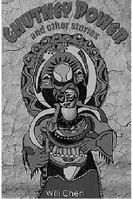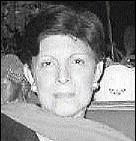

Title: Chutney Power and other stories
Author: Willi Chen
Publishers: Oxford, Macmillan Caribbean, 2006. 162 pages.
Reviewed by: Mary Hanna
A wildly exuberant ride through the elements that make up rural Trinidadian East Indian communities is this compilation of short stories which comes complete with a long glossary to cover the creole vocabulary Willi Chen favours in telling of his tales. These stories are all liberally flavoured with the foods and the dynamics of Trinidadian rural life. Series editor Judy Stone says there is no other writer in the Caribbean quite like Willi Chen who writes with an astonishing vigour and enthusiasm, 'vividly conjuring the smells, textures, sounds and flavours of the Trinidadian countryside'. Chutney Power is a tribute to this writer's skill in presenting a vivid portrait of a particular community - something like Roger Mais in Brother Man or V.S. Naipaul in Miguel Street. Chen's stories are detailed and fine, and, whether hilarious or grim, are always focused on the simple, earthy lives of the poverty-line East Indian community. In Chutney Power, Chen passionately embraces the ability of creole to capture the essence of his characters and show them off to advantage in a Caribbean setting.
The opening story, Mas' is More than a Creole Thing, features Bhim Pandarath who has come to the city by bus from Bastahall with the dream of playing King of the Carnival. He yearns for acceptance, to weave and dance in this leading role, carrying the huge and heavy costume of the King, and he is finally given his chance to do so. This story is warm and enthusiastic, opening the collection on a satisfying note and providing balance for the closing story Welcome Home that tells of the return of a husband who disappeared for several years and yet is welcomed home by his wife Naomi when he returns at Christmas. Many of Chen's stories are set at or around Christmas, which lends a cohesive factor to the broad spectrum of characters and events, and an underlying nuance of specialness to the whole collection.
Pathos-tinged clown
In a second comic story, an endearing, pathos-tinged clown, Prakash, the bottle-washer, is introduced. He is The Bottle-Washer who Nearly Danced. At the end of the evening at the county dance, Prakash must return home without any money:
He tied his borrowed two-toned shoes over his shoulders, pulled up his socks, adjusted his spectacles, blew his nose and looked up the road. And, bracing himself as he thrust his mighty chest to the wind like a kiskadee, he began to walk the long dreary road home. He walked under the heavy branches, into darkness, amidst the symphony of croaking crapauds, back to Caratal.
Chen's beautifully balanced prose rides on the peaks of his creole words and achieves a kind of lilting splendour, deriving from simple things and observations. He writes with panache and style about his simple characters and brings them to life in all their vitality.
In the comic story Free Pork for Christmas, Chen's depiction of the great white boar Rufus who got away and rampaged through the village before being captured and butchered for the Christmas feast is told with vigour and hilarity. Rufus has no intention of being caught and his owner Braveboy must make amends to all whose property is trampled by the prize boar before the killing can take place. Rufus threatens the mosque and must be bludgeoned into obedience. Finally, the pig lay stunned and still from the battering as Braveboy came up to the crowd, He was immensely pleased that Rufus had been captured on the front steps of the mosque. He met stony eyes and threatening stares and was himself collared and dealt several blows. Nine hefty men lassoed Rufus with a heavy chain and dragged him out of the compound. They brought hoses and brooms and gallons of Clorox and bags of lemon to wash down the steps.
Comic stories are a welcome addition to West Indian writing, which is more often of a serious nature. Willi Chen writes also in this darker mode, stories of violence and passion: of Deolat, who loved the wrong woman; of Mano, who went tosteal with the wrong partners; of Sharon, who ran on the beach at the wrong time of night. There are also stories of poverty and betrayal, of men deserting their families, of women struggling to survive and children who are deprived of home and security. The weave of voices is broad and colourful, covering a wide spectrum of situations that make up the community at Christmastime.
Since the tales are so short, there is no room for expansion of character development. Chen must capture the essence of the moment in few words, and he does this brilliantly. There are many stories of courting, and courting gone awry, which focus on food and sharing. Chen has a special talent for writing the feast: his stories about women catering to the needs of hungry men are wonderful and full of creole vocabulary and style. Sapodilla and souse, peewah and pepperpot, pastelle and 'kipsy loce pok' (crispy roast pork) abound. Sada roti and saheena (fried Indian pie made with dasheen leaves and flour) locate the stories in the rural East Indian community and give them a succulent reality. Chen is especially vivid with stories that revolve around food.
Willi Chen was born in central Trinidad, in the cane field county of Couva. He grew up immersed in rural East Indian culture. Drawing on the plural ethnic influences of his upbringing, he has developed into a multi-talented artist. He is winner of national and international awards for painting, poetry, short stories, plays and set design. His sculptures are shown in public places like the foyer of the Port-of-Spain Central Bank and he has designed churches and other buildings. His stories and poems are frequently published in prestigious journals and newspapers. His first collection of stories was King of the Carnival (1988).

